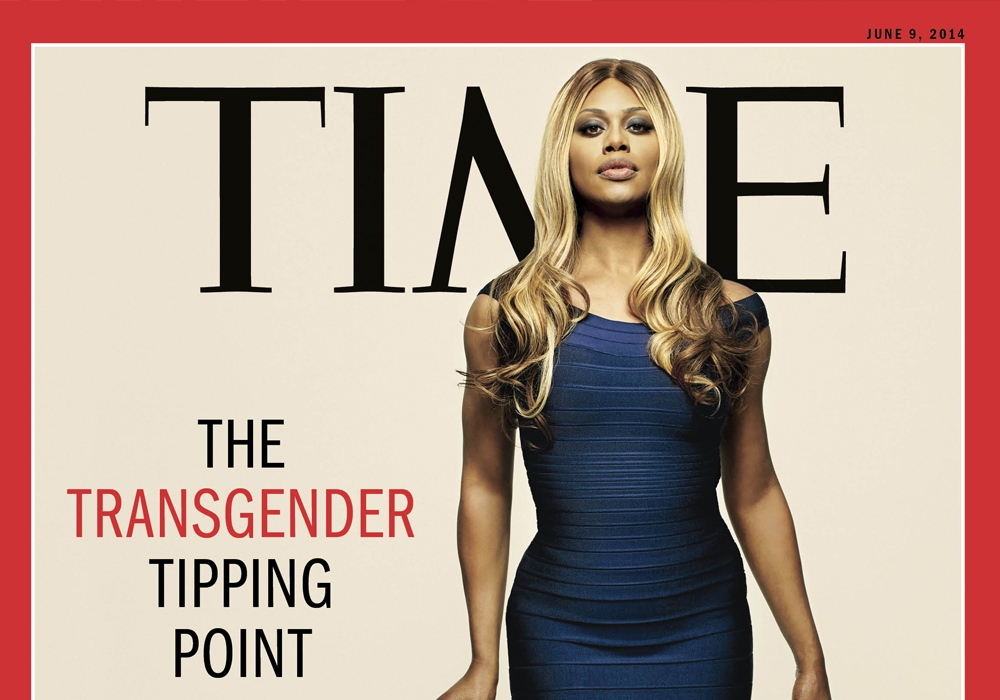I didn’t want to hear about transgender individuals because it had nothing to do with me. Then I realized it has everything to do with me. I could choose to be a supporter or choose to be ignorant and not educate myself about the struggles of the trans community.
I am a supporter of the LGBTQ+ community because I believe in equal rights. I believe that I have no right to speak for another person and demand they be happy in the body and the sex they were assigned to at birth, even if they don’t agree with it.
Grand celebrations have taken place for trans individuals from the enormous support that has come forward since iconoclasts have decided to come out themselves.
Let’s start with Laverne Cox, who was the first openly transgender woman to appear on the cover of TIME magazine. It was through speaking about her own experiences as a trans person of colour and the discrimination and violence she had experienced that finally provided mainstream media a glimpse into trans lives.
I gained a better perspective about transgender individuals through her role of Sophia Burset on Orange is the New Black. I now understood the hate and violence people who are considered “different” or “abnormal” suffer because they decided to stop living lives of lies and start expressing who they really are as a human being.
“Trans people to me are courageous and strong for not being afraid to be who they are and to stand up for what they believe in,” says Mary J. Obiri, a third-year sexuality studies student.
Cox is a great role model in expressing change in our world and hoping for a better future through educating people about discrimination, hate, and violence on individuals that choose to come out about their sexual orientation. Especially trans individuals and those of a visible minorities. Infact, last year Cox came to Toronto for her talk, “Ain’t I a Woman: My Journey to Womanhood” hosted by university student unions which was widely attended and sold out.
Former Olympic athlete and keeper upper with the Kardashians, Caitlyn Jenner, became America’s most famous trans woman since her coming out during an interview with Diane Sawyer. Previously known as Bruce Jenner, Caitlyn was unhappy with the life she was then living, having to fake her feelings and hide her interest in wearing nail polish or wearing dresses.
Now, she has embraced her true identity and in the famous “Call me Caitlyn” Vogue cover, has expressed her personal identity. It is fantastic that there is more awareness and support spreading throughout the world about trans individuals and for anyone else to be able to come out to their friends, families, or co-workers.
People have now started to talk about gender identity and become more aware about the changes that are happening around the world regarding equal rights. The news of Caitlyn Jenner coming out has created a great impact through mainstream media real fast, and this has started conversations in homes, business, and schools.
More trans people are coming out and have become encouraged by Caitlyn Jenner, Laverne Cox, and TV shows like Transparent, to tell people close to them about their identity, about who they really are, and not be ashamed about how they feel.
“I think it’s great that our society is accepting trans people, though it is a process we as people need to recognize that whether someone is trans, homosexual, heterosexual, we are still humans,” says Vanessa A. De Souza, a fourth-year sociology student.
I gain such pleasure knowing that the media is changing alongside our society. There is still a lot of progress that needs to be made. The fight for equal rights is not over and the battle is just beginning.
Trans individuals are gaining media attention about their rights as human beings, however there is still much more to be done as the fight is far from won.
“The media perpetuates a single narrative of transness, one that is very white and very binary,” says Meena Botros a member of TBLGAY at York.
The media rarely speaks to the main issues affecting the trans community, such as the fact that trans women of colour, especially black trans women, are frequently murdered, says Botros.
The fight is to end the exploitation, discrimination, violence, and the prejudice on trans people. To stop shaming them for who they are, and what they know is right for them.
Viginthiny Paramananthan, Staff Writer
Photo courtesy of TIME Magazine


